My Bartell drugstore in Seattle closed abruptly two weeks ago.
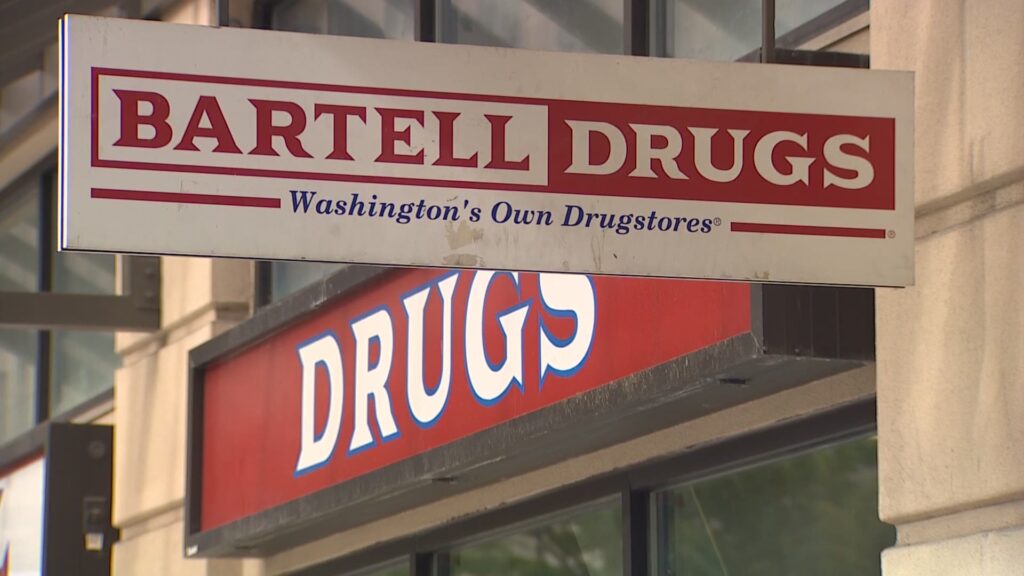
When I say “my drugstore” I am sharing my feelings, not the facts. The fact is that it is the drugstore that I patronize – the one I choose to go to. But, if you are like me, you develop a relationship with your drugstore of choice. You have all of your prescriptions filled in the same place. By the same staff. And you have the same pharmacist explain any new drugs to you.
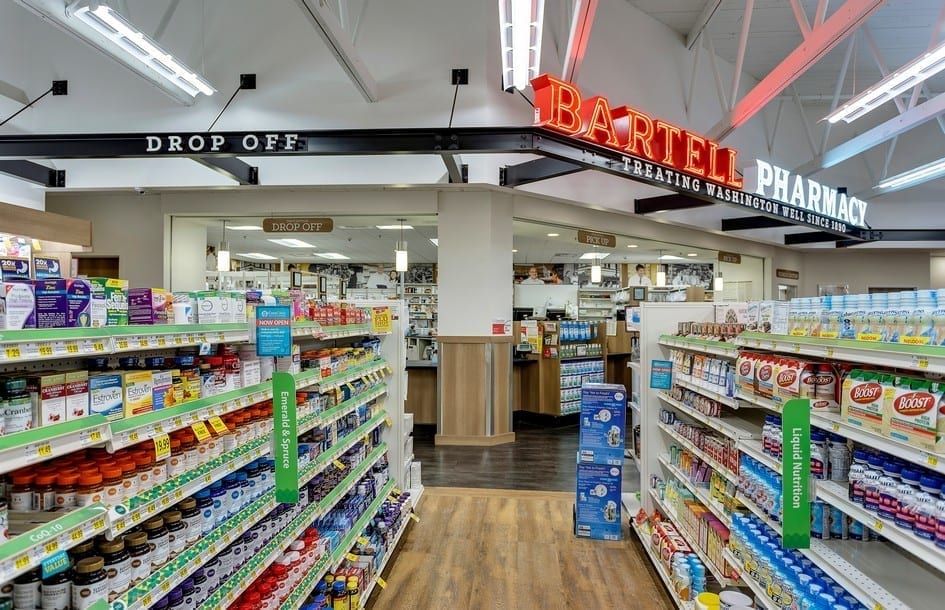
More than that, you also get to know the store which invariably has “everything”, not just medical supplies. It has food, drinks, household items, toiletries, toys, cards for all occasions, and candy. It is my safety valve. If I need something, I can usually find it at my favorite drugstore. In addition, I know exactly on which aisle everything is located. You know the store!
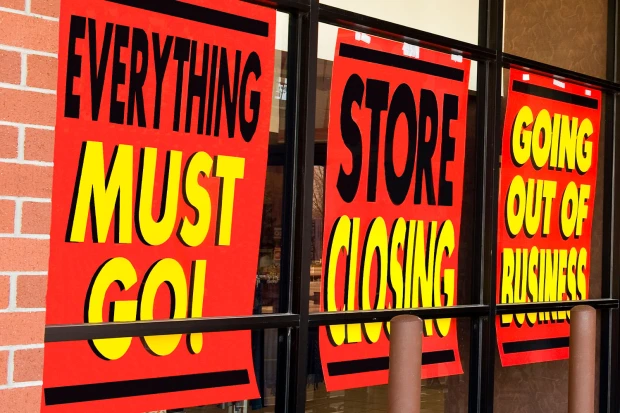
The store closing feels like a loss for me. I am frankly surprised at how much this shuttering of my local pharmacy has irked me. but irked I am. I believe I am going through the five stages of grief.
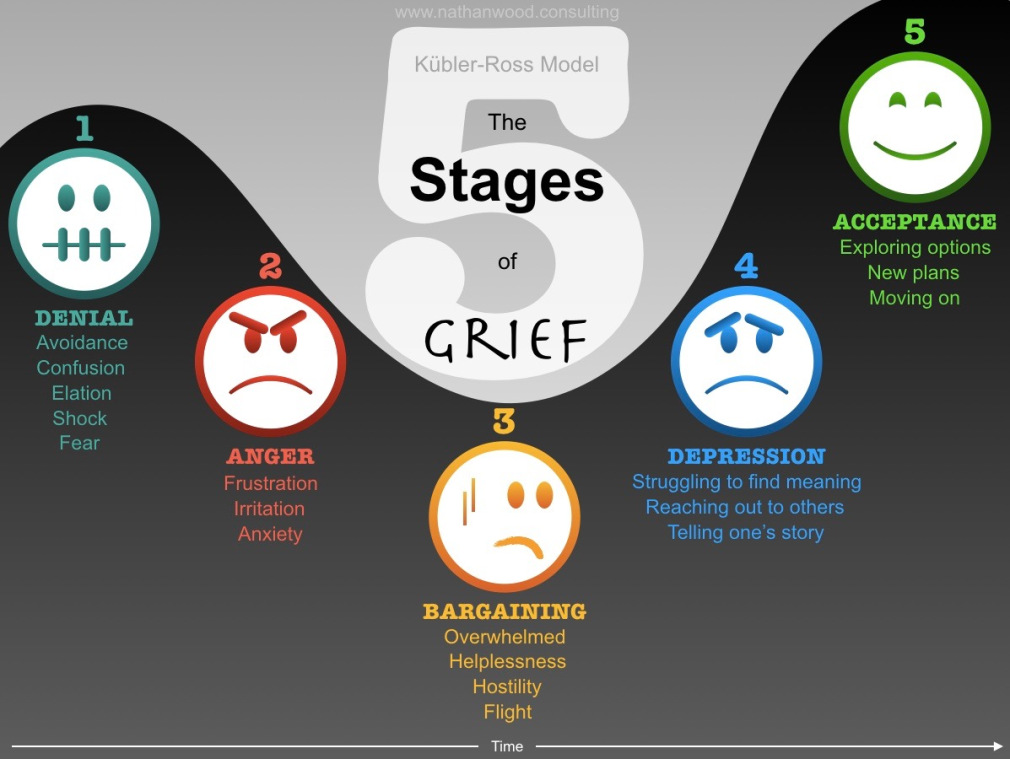
The first stage is denial and disbelief. When I first heard of this closure, I could not believe it. The reason being that it is located in the heart of the South Lake Union neighborhood of Seattle, the neighborhood where 40,000 young, bright Amazonians work and live. How, I ask myself, could this store be shuttered.
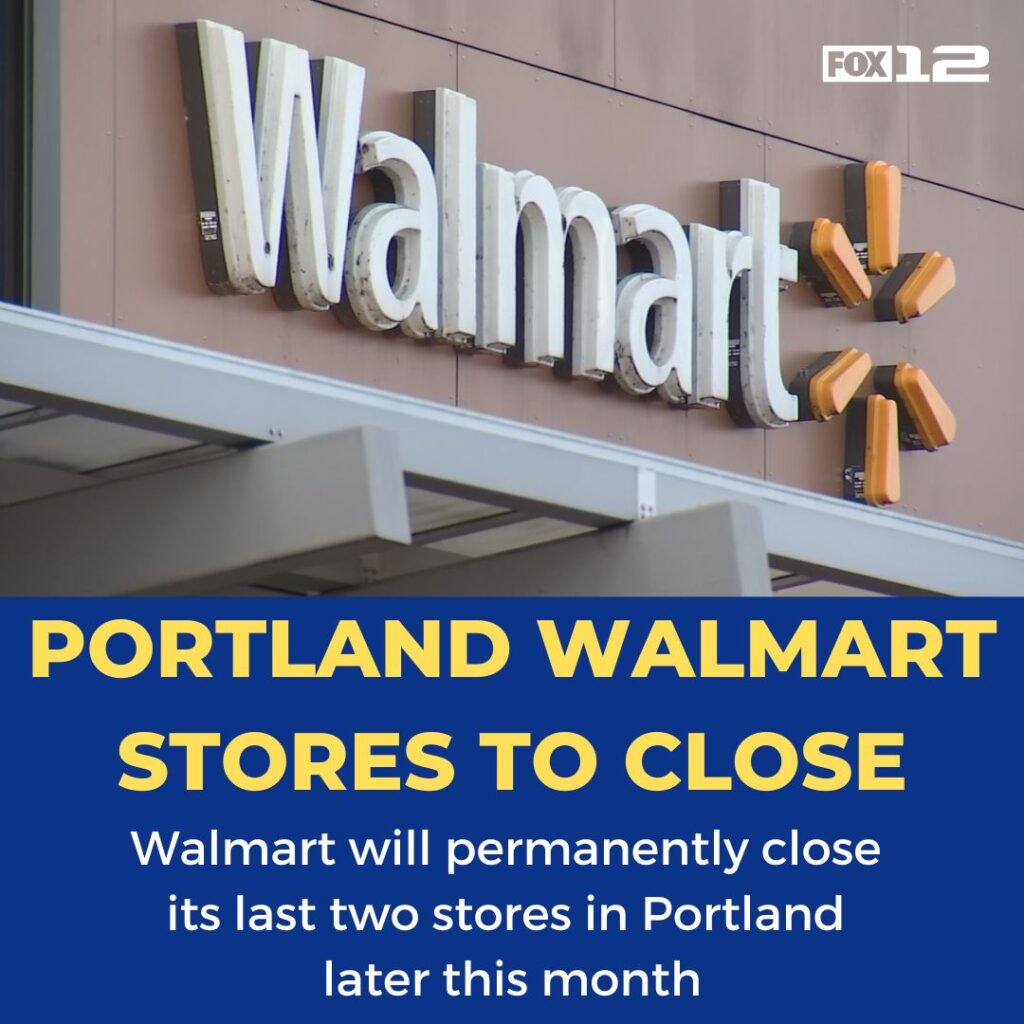
I had heard about drugstores and other stores for that matter shuttering in the downtown areas of cities across the country because of safety and security concerns. It is estimated that some 2,200 stores are closing in 2023 across the country. Some of these closures have received quite a bit of attention. Walmart’s closing of its Portland Oregon store because of “record theft”. Nordstrom’s closure of it San Francisco store “due to crime.” Walgreens is closing 150 of its stores by August 2924. Rite Aid, the owner of Bartells, has closed 145 of its stores in 17 states in the last two years.
But, closing the Bartells store in the South Lake Union section of Seattle makes no sense to me. I just can’t believe that there is a security or safety concern there.
The second stage of grief is anger.
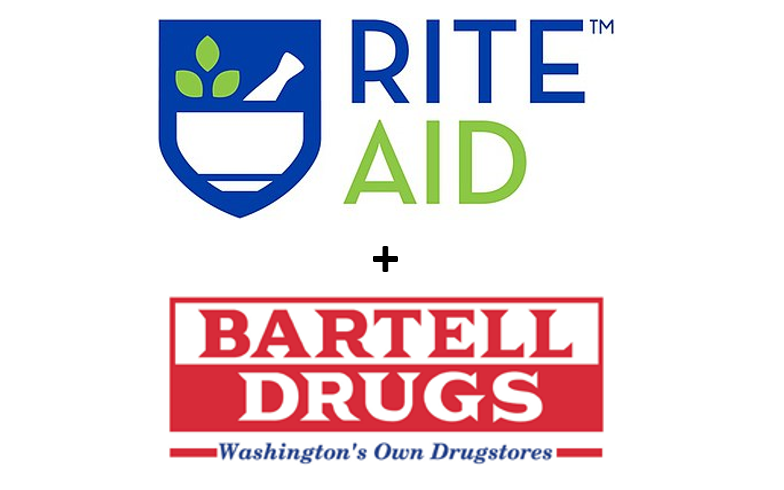
Bartells is an iconic Seattle company, started some 130 years ago. So, it was a major shock in 2020 when the Philadelphia based national chain Rite Aid bought Bartells for $95 million. Rite Aid was in 2022 number 148th on the Fortune 500 in terms of total revenues.
Rite Aid has closed in the last twelve months all four of its Seattle Bartells locations, including in addition to the one in South Lake Union, the ones in Ballard, the University District and in the Chinatown International District.
Bartell’s Sr. Vice President of Operations said in 2020 that the assistant manager of its Ballard location was assaulted, adding “employees are plagued by habitual shoplifters and harassment.” Prior to that, the CEO of Bartell Drugs Kathi Lentzsch announced the chain would not be opening any more stores in downtown Seattle “due to theft, shoplifting and unprovoked, violent assaults on employees.”
Yes, I have anger. Anger at the situation in our downtowns in many American cities that would allow this kind of lawlessness to occur.
But I also have anger at Rite Aid management. Digging more into the situation, I have discovered that there is more to the story than “security and safety concerns.”
Rite Aid’s official reason for the closures is based on factors including “business strategy, lease and rent considerations, local business conditions and viability, and store performance.”
It turns out that Rite Aid is having its own financial challenges. Three years after its $95 million purchase of Bartells, Rite Aid, the company as a whole, is valued at $86 million, less than the purchase price of Bartells. The company’s stock price has dropped 84 percent since the purchase.
Rite Aid is no longer a major competitor in the drugstore industry. Its 2,169 stores in 17 states, ranking number 6, far behind the two leaders – CVS with 9,572 stores and Walgreens with 8,708 stores, both in all 50 states.
Bargaining is the next stage of grief. What I believe this means in this situation is how do I get my pharmaceutical needs met now that my favorite Bartells drugstore has closed its doors.
I received a letter from Walgreens informing me that my “prescription records have been securely transferred to Walgreens.” I went to the Walgreens store that the letter came from and discovered that the pharmacist speaks poor English, the store has locks on the omega 3 and vitamins B-12 displays, and they will not make any effort to retrieve additional prescriptions that are located at a pharmacy in southern California where I spend my winters, which happens to be a CVS.
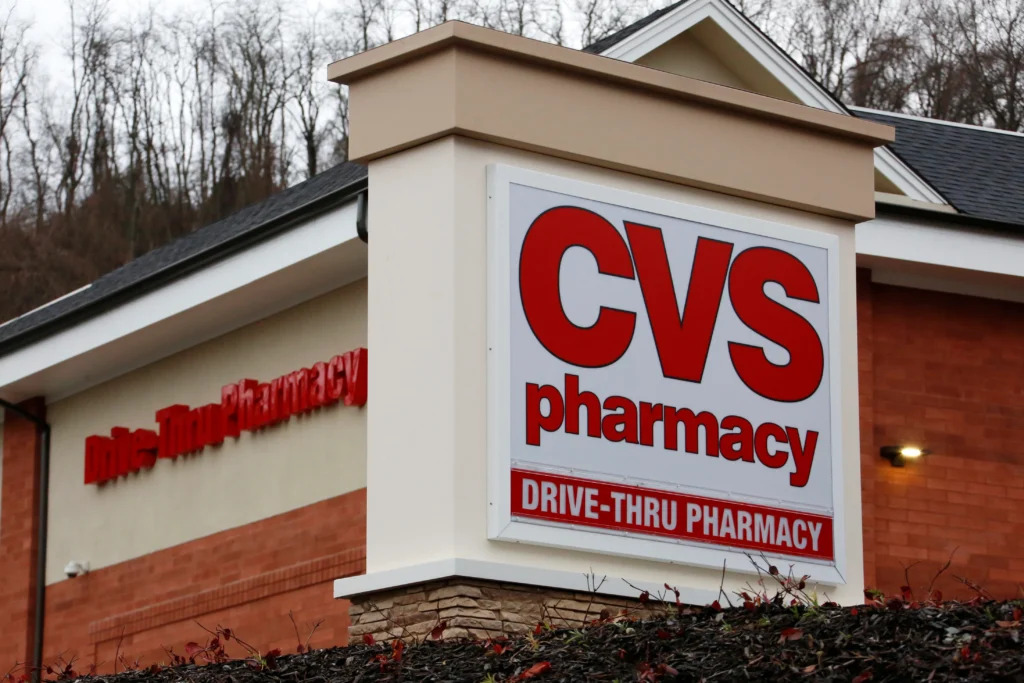
Based on this experience, I chose to find the nearest CVS, which is now my go-to drugstore in Seattle.
Now, two weeks later, I believe that I am in the fourth and fifth stages of grief – depression and acceptance. Depressed about the security and safety issues facing our downtowns in many American cities. Depressed about the lack of honesty and full transparency on the part of management of Rite Aid as to what is really going on. Depressed about the handover of customers to other drugstores.
Depressed but grudgingly accepting the fact that my favorite local drug store has been shuttered and that I will now have my pharmaceutical needs met at a local CVS. This will give me a chance to develop a new relationship with a new drugstore.
Ahh! The fruits of the “defund the police”, “turn a blind eye on shoplifting” “embracing of the drug culture” policies of the “soft on crime” government leaders in the cities that are getting messed up beyond belief. More to come if change does not happen and happen soon. More effort is needed to cure the problem rather than to foment measures to mollycoddle the perpetrators of crime. Punishment may be a good option—countries with the death sentence for drug dealers are not having retail establishment closing due to crime.
Rite Aid, headquartered in Harrisburg, PA, is well-known for its financial mismanagement over the years. There is a reason that Rite-Aid has about one-fourth as many stores as CVS or Walgreens (longtime mismanagement). Ever since Republican Governor Dick Thornburgh’s top political operative was hired as a top manager at Rite Aid, I knew that this capitalist venture was doomed!
If crime were really the cause of the closure of Neil’s favorite local drugstore in his Seattle neighborhood, then all drugstores in all cities across America getting messed up beyond belief would be going out of business — which is clearly not happening.
Mismanagement in an unregulated capitalist system will inevitably result in the failure of some businesses, and this is just one example of this fact of American economic life.
Not sure of the political leanings of the Walgreens leader. The following iis direct from the LA Times. Fact is being soft on crime benefits no one.
Last year, Walgreens said it was closing an additional five stores in San Francisco, bringing the number of shuttered locations to 22 in the last several years, according to the San Francisco Chronicle. The company cited “organized retail crime” for some of the closings.
“It’s changing the shopping experience and causing stores to close their doors,” said Jason Daughrity, coordinator for the state’s Organized Retail Crime Task Force.
Hayes said retailers make decisions on what items to add security measures to based on how often the items are stolen and which stores have the highest rates of theft. “No one can afford to treat every item in every location the same,” he said.
Items including razor blades, medications, ink cartridges and cologne are often stolen because they have six criminal-pleasing characteristics that the industry has dubbed CRAVED: concealable, removable, available, valuable, enjoyable and disposable. By nabbing small, high-priced, easy-to-steal items, thieves minimize the risk of getting caught while maximizing the benefit of getting away with it.
Shoplifters working with organized retail crime rings will often enter a store with an empty garbage bag, which they will open under a shelf of valuable products, Hayes said.
In a statement, Rite Aid said, “we are seeing a higher level of brazen shoplifting and organized retail crime,.